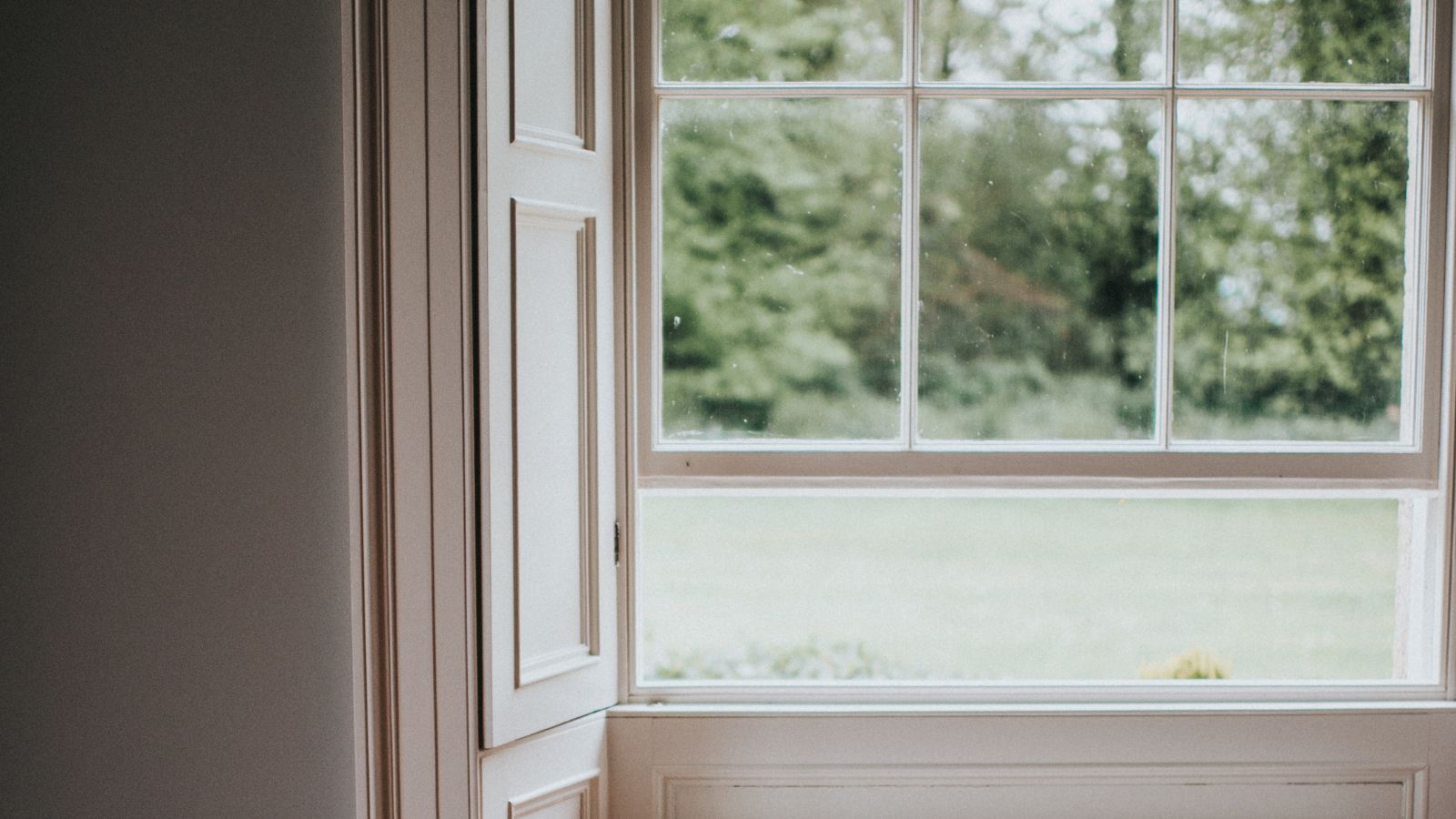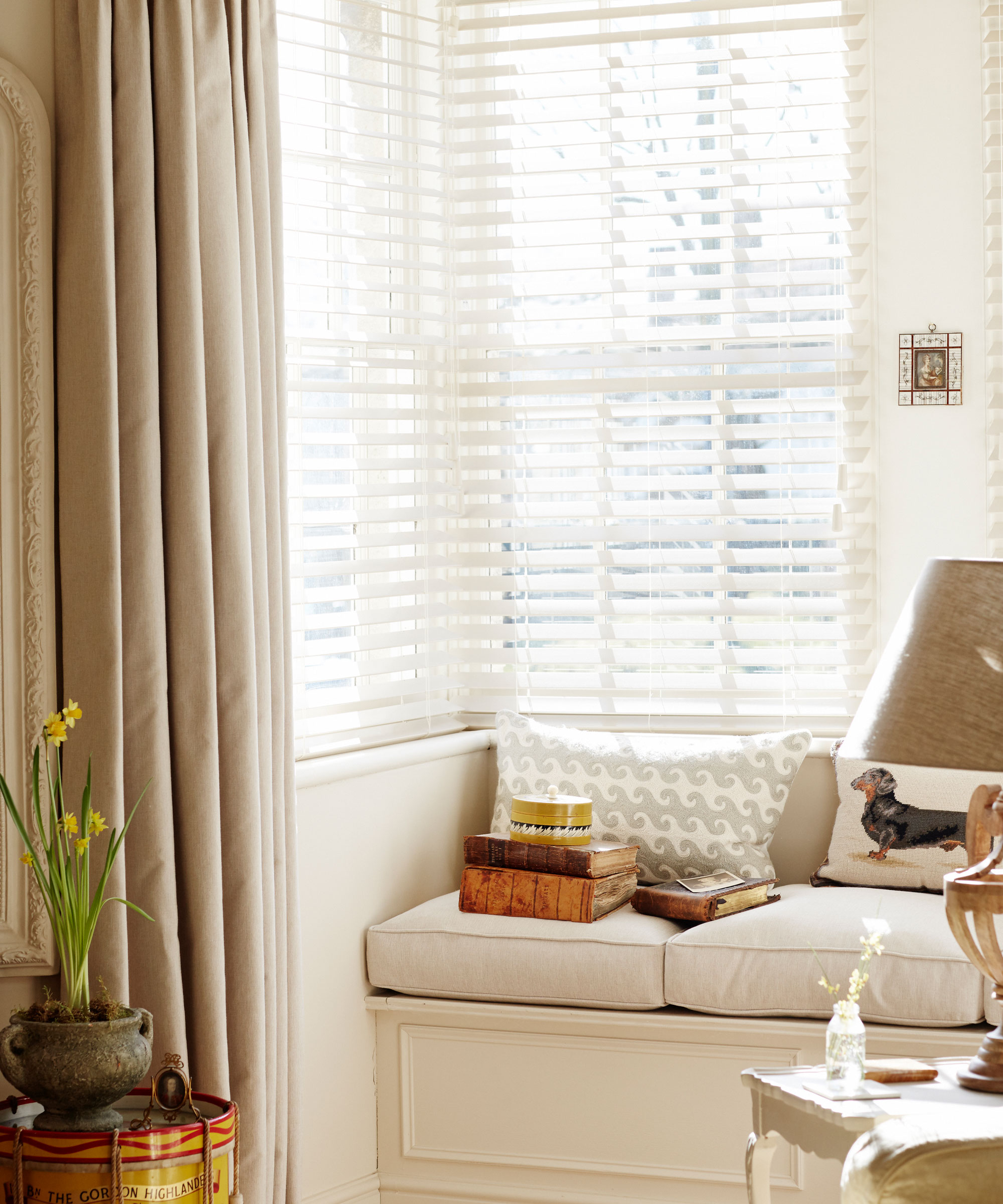How to keep bugs out of a bedroom when sleeping with an open window
There is nothing as infuriating as waking up to a buzzing bug or itchy bites – here’s how to keep insects out but fresh air flowing while you sleep


Design expertise in your inbox – from inspiring decorating ideas and beautiful celebrity homes to practical gardening advice and shopping round-ups.
You are now subscribed
Your newsletter sign-up was successful
Want to add more newsletters?

Twice a week
Homes&Gardens
The ultimate interior design resource from the world's leading experts - discover inspiring decorating ideas, color scheming know-how, garden inspiration and shopping expertise.

Once a week
In The Loop from Next In Design
Members of the Next in Design Circle will receive In the Loop, our weekly email filled with trade news, names to know and spotlight moments. Together we’re building a brighter design future.

Twice a week
Cucina
Whether you’re passionate about hosting exquisite dinners, experimenting with culinary trends, or perfecting your kitchen's design with timeless elegance and innovative functionality, this newsletter is here to inspire
Opening the windows while we sleep is a great way to stay cool, breathe fresh air, and sleep soundly through the summer. However, this blissful rest can easily be disturbed by hovering bugs making their way indoors at night. So how do you keep bugs out of a bedroom when sleeping with an open window?
Closing the window is not the best move if you want to sleep better, given that we should all be sleeping with the bedroom door open to help improve airflow. The good news is there are a few ways you can keep bugs at bay without losing any sleep.
From homemade bug sprays to well-placed lighting, here is how the pros approach night-time bugs in bedrooms.
How to keep bugs out of a bedroom when sleeping with an open window
Blocking bugs from entering your room and waking you up is one of the many ways you can make your bedroom better for sleep – especially in summer.

1. Start with window screens
It may seem obvious, but using or installing a mesh bedroom pest screen is one of the best ways to physically block bugs from entering your home, says Amadou Kongira, epidemiologist.
‘When fitting a screen, ensure there are no gaps or cracks that flies can use to gain access,’ he advises, ‘or your hard work will be undone in seconds.’
Adjustable Magnetic Window Screen | $32.99 at Amazon
If you don't have bug screens built onto your windows it is simple to add your own. Better yet, they are fully adjustable to fit any shape or sized window and don’t require any drilling or hard DIY.
2. Use a bed canopy to protect you as you sleep
Another physical barrier option is to protect your bed itself, mentions Millie Hurst, Solved section editor of Homes & Gardens. Bed canopies can add a whimsical flair to your bed but also protect you from biting bugs as you sleep.
Design expertise in your inbox – from inspiring decorating ideas and beautiful celebrity homes to practical gardening advice and shopping round-ups.
We like this four-poster style bed canopy, available at Amazon, for a romantic touch to keeping bugs at bay.

Millie Hurst is Section Editor at Homes & Gardens, overseeing the Solved section, which provides readers with practical advice for their homes. Millie has written about and tried out countless cleaning and DIY hacks in the six years since she became a journalist, and has worked in both London and New York.
3. Minimize light around your window
If you have ever tried to keep bugs away from porch lights then you will know just how much insects love your home’s lighting. As a result, keeping lights away from your bedroom window can help prevent pests from drawing near and eventually making their way in, suggests Nicole Carpenter, pest control expert and CEO of Black Pest Prevention.
‘You can also opt for yellow or orange lights, which are less appealing to bugs if you still need some illumination,’ she recommends.

Nicole Carpenter first began working at Black Pest Prevention when she was a junior in high school. While attending N.C. State University she continued to work for the company and has since worked through the organization to now becoming its CEO. Black Pest Prevention is a Charlotte pest control company that serves North and South Carolina.
4. Set a bug trap on windowsills
Perfect for getting rid of wasps and keeping flies out of the house, bug traps that use natural ingredients are a perfect option if you want to deal with just a few stray bugs that come your way.
‘You can use vinegar and dish soap to trap flying bugs,’ says Izzy Goldberg, gardens expert at White Maple Landscaping. ‘To use this technique, combine a little amount of dish soap and roughly an inch of apple cider vinegar in a tall glass. Wrap some plastic wrap around the glass. Make a few tiny holes in the top of the plastic wrap and fasten it with a rubber band. Flies drawn to the vinegar in the glass, get trapped, and drown.’
You can even try using natural trap plants on your bedroom window sills to help keep the odd bug away while also brightening up your interior.
5. Use natural scent repellents
Scented repellents are excellent for keeping flying insects away from windows. For a simple homemade moth repellent that also works for mosquitos, you can take one cup of water and add either five drops of lemon eucalyptus essential oil or five drops of citronella essential oil, explains Diana Cox, founder of The Gardening Talk.
‘This mixture can be sprayed on exposed skin and around doorways, windows, and light fixtures. The natural aromas of these oils act as a repellent that mosquitoes dislike. While these DIY sprays work well, it's important to note that commercial repellents containing DEET or picaridin provide the highest level of protection.
‘However, for those who prefer natural alternatives, these essential oil-based recipes offer effective homemade options.’
6. Keep your bedroom clean
Pests are attracted to dirty spots in our home where they can find food and shelter, so regularly cleaning your bedroom, taking cups and plates back to the kitchen, and ensuring there are no piles of clothing or linens on your floor can dissuade them from purposefully entering your space, mentions epidemiologist Amadou Kongira.
‘Regularly dispose of garbage, clean spills, and keep your area free from food debris. Bugs are attracted to organic matter, so reducing their food sources will discourage them from staying.’
7. Use a fan to make entering more challenging
Having one of the best fans on in your bedroom makes it easy to keep yourself cool at night, but Nicole Carpenter, pest control expert reveals that they can also help with keeping bugs away. Face one towards the window to not only push hot air out but bugs and insects too.
‘Consider placing a fan near the open window to create airflow, making it more challenging for flying insects to enter the room.’
8. Close windows at peak activity times
Insects are active at a low level throughout the day, however, there are some peak times such as dawn and dusk where they are at the most prevalent, points out Millie Hurst, Solved section editor. ‘You should be aware of these peak insect activity times, such as dawn and dusk, and close the window during these periods, reopening them a little later on in the evening,’ she suggests.
FAQs
How do bugs get into your bedroom?
There are several ways bugs can get into your bedroom, from flying in through an open window, to coming in on your clothing, pets, or shoes. It may also be that you have a wider home infestation and the bugs have migrated internally through your home to make it into your bedroom, too, so it is worth checking your whole home if you notice one or two insects hanging around your space.
Can you put WD40 around windows to keep bugs away?
WD-40 can be sprayed around window and door frames to help repel bugs and prevent them from entering your home thanks to its pungent smell. Apply liberally around any areas you want to ward bugs away from, being careful that it doesn’t come into contact with fabrics like curtains or rugs as it may stain.
When preventing bugs in a bedroom while you sleep, it may not just be your open window you have to think about, warns Nicole Carpenter, pest control expert. ‘Make sure to also inspect the rest of the bedroom for other potential entry points, such as gaps around doors or vents, and address them accordingly.
‘Furthermore, while these tips can be helpful, seeking assistance from a professional pest control service can offer more targeted solutions for persistent bug problems.’

Chiana is Homes & Gardens’ kitchen appliances editor. With a lifelong passion for cooking and baking, she grew up experimenting in the kitchen every weekend with her baking-extraordinaire Mom, and has developed a great understanding of how tools and appliances can make or break your ideal relaxing kitchen routine.
